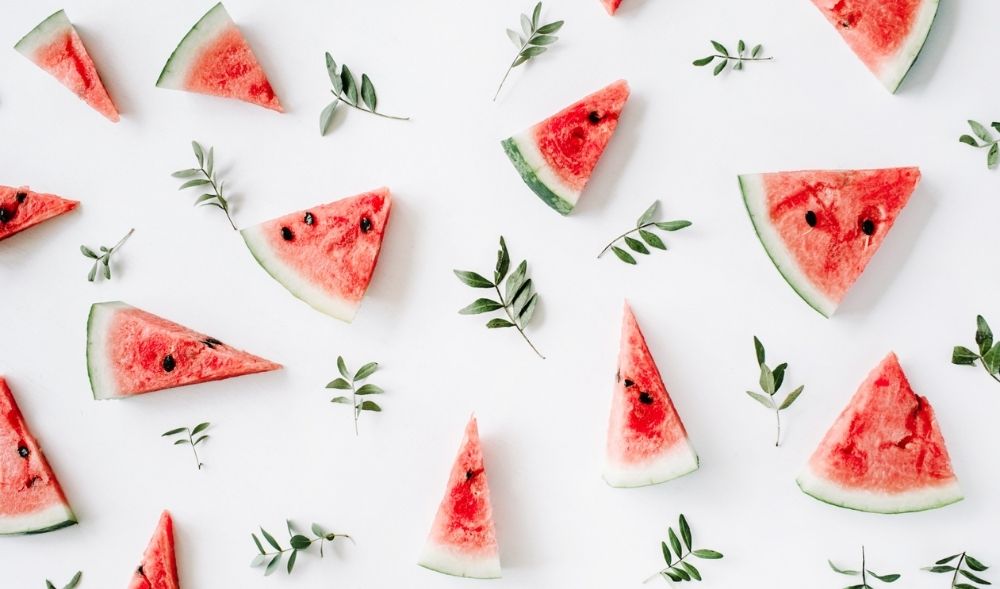
Superfood: Watermelon
In terms of nutritional physiology, watermelon is a real power pack, because it contains a balanced combination of vitamins, minerals and trace elements. But water is the main component in watermelons. If you try to stay slim and care about your fitness, beauty and health, watermelon is the superfood for you. For a long time they’ve had a bad reputation due to the idea that they contain only water and sugar. The flesh of various watermelons has been investigated by the food industry. And it was found that the red, tasty flesh is full of healthy nutrients and vital substances. Watermelons are also used in anti-ageing treatments, where they have earned an excellent reputation. Certain substances, secondary plant substances, phytosterols and antioxidants offer comprehensive cell protection and protect against premature ageing, in particular of skin cells.
As you age, the production of natural collagen declines, so skin loses its elasticity and wrinkles form, which makes skin look older. It’s proven that both the melon flesh and brown seeds contain large amounts of the natural precursor to vitamin A, beta carotene. This natural pro vitamin is effective against premature skin-ageing. So eating watermelon regularly can make your skin more beautiful. But that’s not the only reason why watermelon is a real superfood for your health. It also contains high levels of natural vitamins C which combats the ageing process. The red colour of the flesh is due to the natural dye lycopin, which is also present in ripe tomatoes. What many don’t know is that watermelons contains much more lycopin than tomatoes. Lycopin is a strong antioxidants with a very positive effect on the health of body cells. Lycopin helps to make free radicals harmless.
The risk of stroke is significantly reduced, high blood pressure is lowered and the elasticity of arteries is improved. If you get enough natural lycopin in your food, it strengthens your immune system and so throughout the year you’ll suffer fewer infections and colds. Watermelons are sensitive and can go bad quickly, so to keep their quality it’s vital to store them properly. It’s been proven that the lycopin content falls only slightly when it’s stored in the fridge for up to eight days. Watermelon contains lots of fibre, which is good for intestinal health. Watermelon also contains B complex vitamins, choline and potassium, which prevent pain and inflammation and also aids healthy sleep. Citrulline in watermelon is a very special amino acid with an excellent effect on blood circulation in the small blood vessels. Watermelon is also a real superfood as part of a diet as the betain in it boosts fat metabolism and detoxifies the liver.






